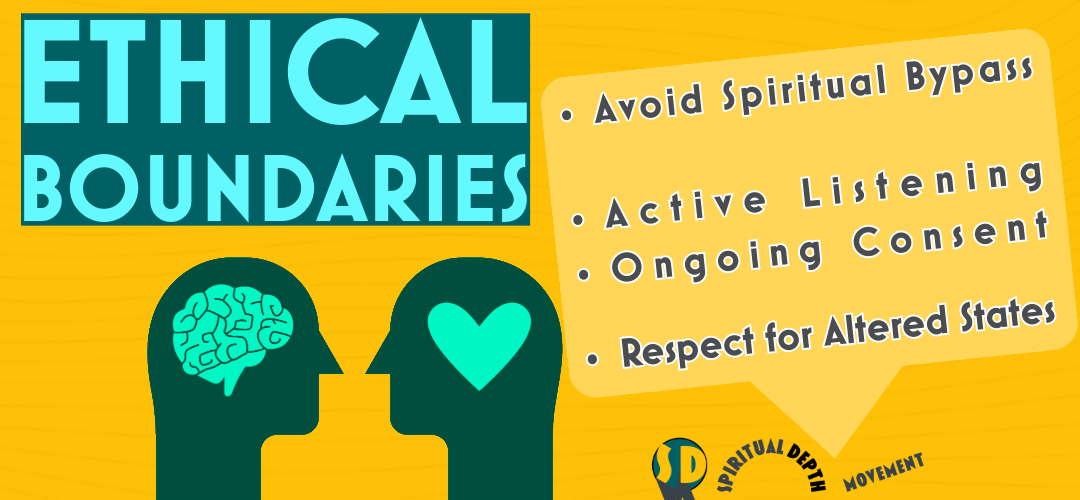Ethical boundaries form the bedrock of spiritual depth coaching. They create a safe container for exploration and growth, which allows clients to be especially vulnerable without fear of exploitation or harm. Once clear guidelines are established, coaches will be able to demonstrate respect for their clients’ autonomy and well-being. Trust is the invisible thread weaving together coach and client. It’s nurtured so that authenticity, empathy, and unwavering commitment become ethical practice. When trust flourishes, transformation follows.
Honoring Client Autonomy
Respecting client autonomy is non-negotiable. Coaches must resist the temptation to impose their beliefs or solutions, instead empowering clients to discover their own truths. This approach in fact fosters self-reliance and sustainable growth.
Maintaining Professional Boundaries
Clear boundaries protect both coach and client. They define the scope of the relationship, which is how emotional entanglement or dependency may be preventable. What’s more, professional distance allows for objective guidance and maintains the integrity of the coaching process.
Ethical Challenges in Spiritual Depth Work
Spiritual coaching often ventures into profound emotional and existential territories. This depth can blur lines and present especially unique ethical challenges. Awareness and proactive strategies are essential for navigating these waters.
Avoiding Spiritual Bypass
Spiritual bypass occurs when individuals use spiritual practices to avoid addressing underlying emotional issues. Ethical coaches recognize this tendency and gently guide clients towards holistic healing, integrating spiritual insights with psychological work.
Managing Power Dynamics
The nature of spiritual coaching can create power imbalances. Clients may view coaches as spiritual authorities, potentially leading to unhealthy dependence. Ethical coaches actively work to equalize power dynamics, moreover empowering clients to trust their inner wisdom.

Techniques for Ethical Practice of Healthy Boundaries
Implementing ethical boundaries requires skill and intention. These techniques help coaches maintain integrity while fostering deep connections:
Active Listening and Empathetic Presence
Truly hearing clients builds trust and understanding. Coaches practice deep listening, attuning to both spoken words and unspoken emotions. This creates a safe space for particularly authentic exploration.
Clear Contracting for Ethical Boundaries
Establishing clear agreements at the outset sets expectations which actually helps to define boundaries. Coaches discuss confidentiality, session structure, and the scope of their work. This transparency builds trust and prevents misunderstandings.

Ongoing Consent
Ethical coaches seek ongoing consent, especially when exploring sensitive areas. They check in regularly in order to ensure that clients feel comfortable with the direction and pace of the work.
Navigating Spiritual and Cultural Diversity in Ethics
Spiritual depth coaching often involves diverse belief systems and cultural backgrounds. Ethical practice demands respect for this diversity which effectively brings more awareness of potential biases.
Cultural Competence to Enhance Clear Boundaries
Coaches cultivate cultural competence, educating themselves about various spiritual traditions and cultural norms. This knowledge helps them avoid imposing their own worldviews and honor clients’ unique perspectives.
Interfaith Sensitivity
When working across faith traditions, coaches maintain an open, non-judgmental stance. They create space for clients to explore their spirituality without pressure to conform to any particular belief system.

Use of Spiritual Practices and Techniques for Ethical Boundaries
Spiritual depth coaching may incorporate various practices and techniques. Ethical implementation is crucial for maintaining trust and avoiding harm.
Informed Consent for Spiritual Practices
Before introducing meditation, energy work, or other spiritual practices, coaches obtain informed consent. They explain the purpose and potential effects, allowing clients to make informed choices.
Respecting Ethical Boundaries with Altered States
Some spiritual practices may induce altered states of consciousness. Ethical coaches approach these experiences with caution, ensuring client safety and comfort throughout the process.
Professional Development and Supervision
Ethical practice requires ongoing growth and accountability. Coaches invest in their own development and seek support to navigate challenging situations.
Continuing Education in Ethical Boundaries
Ethical coaches commit to lifelong learning, staying updated on best practices and emerging research in spiritual coaching and related fields. This ensures their work remains grounded in current knowledge.
Peer Supervision and Consultation
Regular supervision provides a space for coaches to reflect on their practice, address ethical dilemmas, and receive guidance. This external perspective helps maintain objectivity and ethical integrity.
Conclusion: The Transformative Power of Ethical Boundaries
Navigating ethical boundaries in spiritual depth coaching is both an art and a science. It requires wisdom, compassion, and unwavering commitment to client well-being. When done skillfully, it creates a sacred container for profound transformation. Ethical practice isn’t a limitation; it’s a catalyst for deeper, more authentic work. By honoring boundaries, coaches create the trust and safety necessary for clients to explore their innermost selves.
This journey, guided by ethical principles, leads to lasting growth and spiritual awakening. As spiritual depth coaches, we hold a profound responsibility. Our ethical choices ripple outward, affecting not only our clients but the wider world. By embodying integrity in our practice, we contribute to a more conscious, compassionate global community. The path of ethical spiritual coaching is one of continuous growth and refinement. As we navigate its challenges, we too are transformed, deepening our own spiritual wisdom and capacity for service. In this sacred dance of ethics and transformation, both coach and client evolve, co-creating a more awakened world.
Related articles:
Trust- Deepening Bonds
Power of Spiritual Coaching
Soul Centered Coaching
Trustworthiness Criteria
